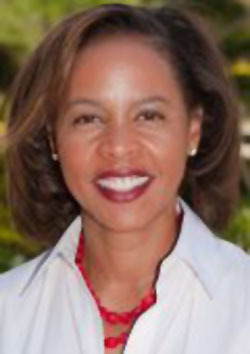Dealership Departments Duel
The dealership sales department and finance and insurance office can find themselves at cross-purposes. Clashes occur. It’s not hard to see why.


LAS VEGAS – Car sales people and finance managers work under the same dealership roof, but can seem miles apart.
“There’s a massive disconnect between the sales team and the business office,” says Tony Duaquier of American Finance & Automotive Services. “There needs to be more education on how one can help the other.”
He and other attendees at the F&I Management and Technology Conference here note differences and discuss ways to get the two groups working more closely together.
Although both are in auto retailing, the sales department and finance and insurance office can find themselves at cross purposes. Clashes occur. It’s not hard to see why.
For example, showroom staffers, anxious to sell cars, sometimes fear the F&I office will blow the deal by finding flaws in how it is structured, failing to secure attractive financing or vexing customers with prolonged aftermarket sales presentations.
On the other hand, finance managers complain about sales people prematurely quoting monthly rates on the floor, butting into F&I business and assembling implausible deals, then expecting the finance manager to figure out how to get financing for customers on vehicles beyond their means.
“The salespeople are not experts in closing financing, yet many of them are out there selling payments, and some are trying to sell extended-service contracts,” says Duaquier, his firm’s F&I training director.
When it comes to who should sell service contracts and other F&I products, it’s definitely not the showroom set, he says.

Today’s sales-F&I discussions sound familiar, says Heather Haynes of JM&A.
Interdepartmental conflicts are not a new problem, Heather Haynes, training manager for service provider JM&A, says.
“I feel like we’re having the same discussion I had when I was in the F&I office 15 years ago,” she says. “Sales people quoting rates. Telling customers they don’t need service contracts. Some things don’t evolve.”
Sales people are not going out of their way to vex F&I staffers, says Bart Carpenter, training director for GSFSGroup, an F&I-services firm.
“We see most sales people wanting to do the right thing,” he says. “They are not out to mess up F&I. A lot of it is keeping them informed, knowing what is going on and getting F&I involved early in the sales process.”
Relations between departments improve “if sales people are taught what to do right not always told what they are doing wrong,” Carpenter says. Invisible walls may block cooperation, but so can real walls separating the two departments.
That’s why Haynes proposes putting the F&I office next to the sales ‘desk.’ “That is where the action is,” she says. “F&I people know how to finance customers and talk to the banks. They can help sell more cars.”
Enhanced interaction should include F&I managers regularly attending sales meetings, Haynes says. “How many times does an F&I manager not show up at those? How can you affect behavior if you are not there?”
F&I managers should get out more, rather than sit in their offices, waiting for salespersons to escort in customers, says F&I trainer Ron Reahard, president of Reahard and Associates. “We’re not doing our jobs if we are hiding in our offices.”
The dealership principal is responsible for ensuring that sales and F&I departments work in harmony, Duaquier says. “Accountability begins at the dealer and general- manager level. Everyone should be held accountable.”
F&I and sales personnel would work in sync better if dealerships cross-trained them, says Joe Amendola, senior vice president at Resource Automotive, a training and finance firm.
“Most sales people don’t know what is happening in the F&I office,” he says. “They think there’s voodoo going on that will hurt their deal.”
Amendola urges sales people to sit in on some F&I customer presentations so they know firsthand what transpires. “We need to sell more cars as a team.”
Some dealership sales people perform poorly because their hearts aren’t in it, says Luis Garcia, training director at F&I provider Safe-Guard Products International.
“A lot of them are transients,” he says. “They lost a previous job and would take it back if it were offered to them. They are not dealership-career oriented.”
It comes down “to hiring the right people, not transients,” says Dupaquier, who recommends scouting for talent outside the auto-retail industry.
“If you see a standout employee at a restaurant or a shop, ask them to come in to talk to you,” he says. “You don’t have to hire them right there, but you can discuss opportunities.”
College campuses are good spots to recruit dealership prospects, says Kelly Wadlinger, finance director at Faulker Nissan in central Pennsylvania.
She holds a degree in biology and “never had plans to go into the car business.” She doesn’t look for “the typical sales personality,” but instead “for someone who has done volunteer work and who shows dedication. Then I tell them about how the car business offers a lot of potential, and suggest they give it a try.”
About the Author
You May Also Like

